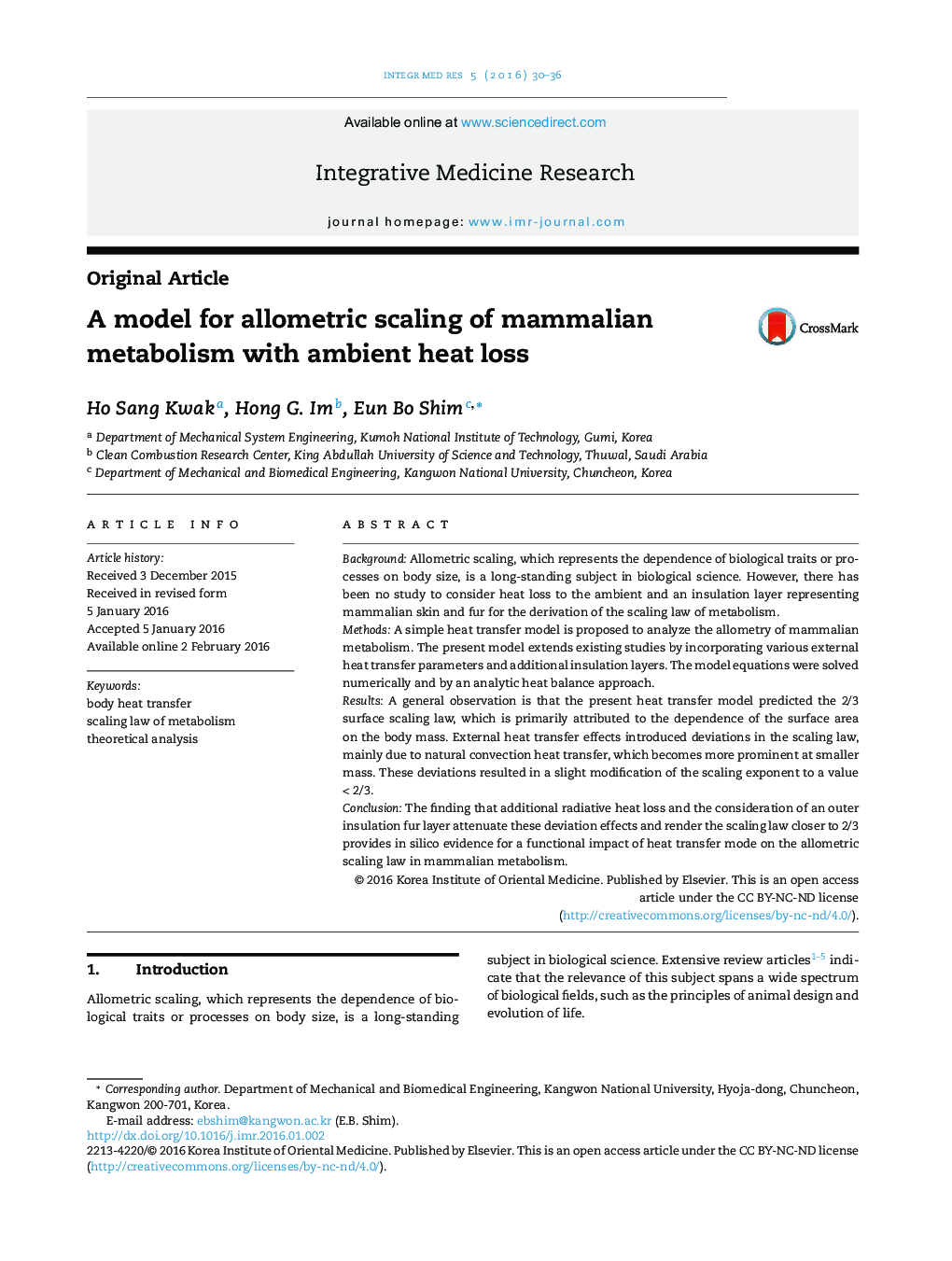| کد مقاله | کد نشریه | سال انتشار | مقاله انگلیسی | نسخه تمام متن |
|---|---|---|---|---|
| 3098213 | 1190990 | 2016 | 7 صفحه PDF | دانلود رایگان |
BackgroundAllometric scaling, which represents the dependence of biological traits or processes on body size, is a long-standing subject in biological science. However, there has been no study to consider heat loss to the ambient and an insulation layer representing mammalian skin and fur for the derivation of the scaling law of metabolism.MethodsA simple heat transfer model is proposed to analyze the allometry of mammalian metabolism. The present model extends existing studies by incorporating various external heat transfer parameters and additional insulation layers. The model equations were solved numerically and by an analytic heat balance approach.ResultsA general observation is that the present heat transfer model predicted the 2/3 surface scaling law, which is primarily attributed to the dependence of the surface area on the body mass. External heat transfer effects introduced deviations in the scaling law, mainly due to natural convection heat transfer, which becomes more prominent at smaller mass. These deviations resulted in a slight modification of the scaling exponent to a value < 2/3.ConclusionThe finding that additional radiative heat loss and the consideration of an outer insulation fur layer attenuate these deviation effects and render the scaling law closer to 2/3 provides in silico evidence for a functional impact of heat transfer mode on the allometric scaling law in mammalian metabolism.
Journal: Integrative Medicine Research - Volume 5, Issue 1, March 2016, Pages 30–36
